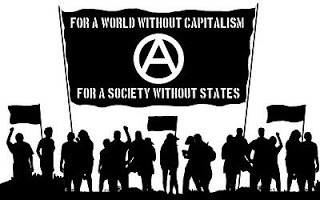Well, the party's over, as the words of the song go, and today that could be literally, as the year ended and also figuratively, as the millionaire public school thugs rip our welfare system apart. Of course in ordinary life when the party's over, we have to get back to the daily grind. In this case it will be realising that we have a helluva fight on our hands if we want a world in which all can live with dignity and free from the fear of deprivation. We now face a period where the thoughts will be of survival, not of parties. However in times of adversity the ordinary people have always shown tremendous resolve and when the come together they are an unstoppable force that can re-shape the world. Glasgow, like most cities, can be proud of its radical history of struggle and at times like these we can perhaps learn from those past battles when we took on the establishment and won. We can also take inspiration from some of those members of the working class that showed selfless dedication to the cause of the ordinary people. One of Glasgow's many working class heroes was Mary Barbour, at a time of tremendous deprivation she organised with other women in the city and took on the British government and won. The battle is known as "The Rent Strikes", perhaps now we can again call on the strength and determination of all those Mary Barbours' that are living in the city today.
The following is a page from Radical Glasgow's
Strugglepedia, where you will find more of Glasgow's heroes and some of the city's struggles.
MARY BARBOUR, 1875-1958
EARLY LIFE.
Mary Barbour was born on the 22nd of February 1875 in the village of Kilbarchan. She was the third child of seven, her father was a carpet weaver. In 1887 the family moved to the village of Elderslie. Mary worked as a thread twister eventually becoming a carpet printer. The year 1896 saw her marry David Barbour and settle in the Govan Burgh of Glasgow. She joined and became an active member of the Kinning Park Co-operative Guild, The first to be established in Scotland.
GLASGOW RENT STRIKE & WOMEN’S PEACE CRUSADE.
Mary joined the Independent Labour Party and the Socialist Sunday School. The Glasgow rent strike during the first world war brought her to the forefront of local political activity. Because of large rent increases by the Landlords, the Glasgow Women's Housing Association was born in 1914. It was in Govan that the first active résistance to rent increases appeared. Mary Barbour was instrumental in forming the South Govan Women's Housing Association. As a working class housewife with two sons and her husband an engineer in the shipyards she was well qualified to be energetically engaged in all its activities from the organising of committees to the physical prevention of evictions and the hounding of the Sheriff's Officers. This type of activity soon spread to the whole of the Clydeside area. The situation climaxed on the 17th of November 1915 with one of the largest demonstrations in Glasgow's political history. Thousands of women marching with thousands of shipyard and engineering workers paraded through the streets of the city to the Glasgow Sheriff's Court where the demonstration was near riot proportions. Out of this defiant stand came the "Rent Restriction Act" heralding in a change in the housing system of the city of Glasgow. The act also benefited tenants across the country. Mary's involvement in this struggle had made her a working class hero in Govan and much further afield. Together with Helen Crawfurd and Agnes Dollan, Mary, in June 1916, was instrumental in founding the Women's Peace Crusade in Glasgow. She was a frequent and regular speaker at its many rallies on Glasgow Green.
FIRST WOMAN LABOUR COUNCILLOR.
1920 saw Mary stand as one of three candidates for the Fairfield Ward of Govan, and elected to the Glasgow Town Council as its first woman Labour Councillor. It was mainly the women's vote that gave her the 4,701 votes that marked her success. During her term as a Labour Councillor she fought for many causes to help the poorest in the community. The range of policies that she pushed for covered a very wide spectrum but all for the benefit of the working class community. Among them were such things as washhouses, laundries and public baths, free milk to school children, child welfare centres, play areas, pensions for mothers, home helps and municipal banks, she also pushed for a campaign against consumption.
FIRST WOMAN BAILLIE.
The years 1924-1927 saw her serve as Glasgow Corporation's first woman Baillie and appointed as one of the first woman Magistrates in Glasgow. Her council work allowed her to develop her commitment to the welfare of women and children. In 1925 she was chairperson of the Women's Welfare and Advisory Clinic, Glasgow's first family planning centre. Mary worked continuously and energetically to raise funds to support its team of women doctors and nurses. Mary Barbour retired from her council work in 1931 but never relented on her work load in committees for welfare and housing and remained energetically involved in Co-operative Committees. In her later years she continued her commitment to the welfare of the poor by organising trips to the seaside for children of the poor. At the inaugural meeting in Glasgow of the Scottish National Assembly of Women she was the guest speaker. At the age of 83 she died on the 2nd of April 1958. Her funeral took place at Craigton Crematorium in Govan.


















